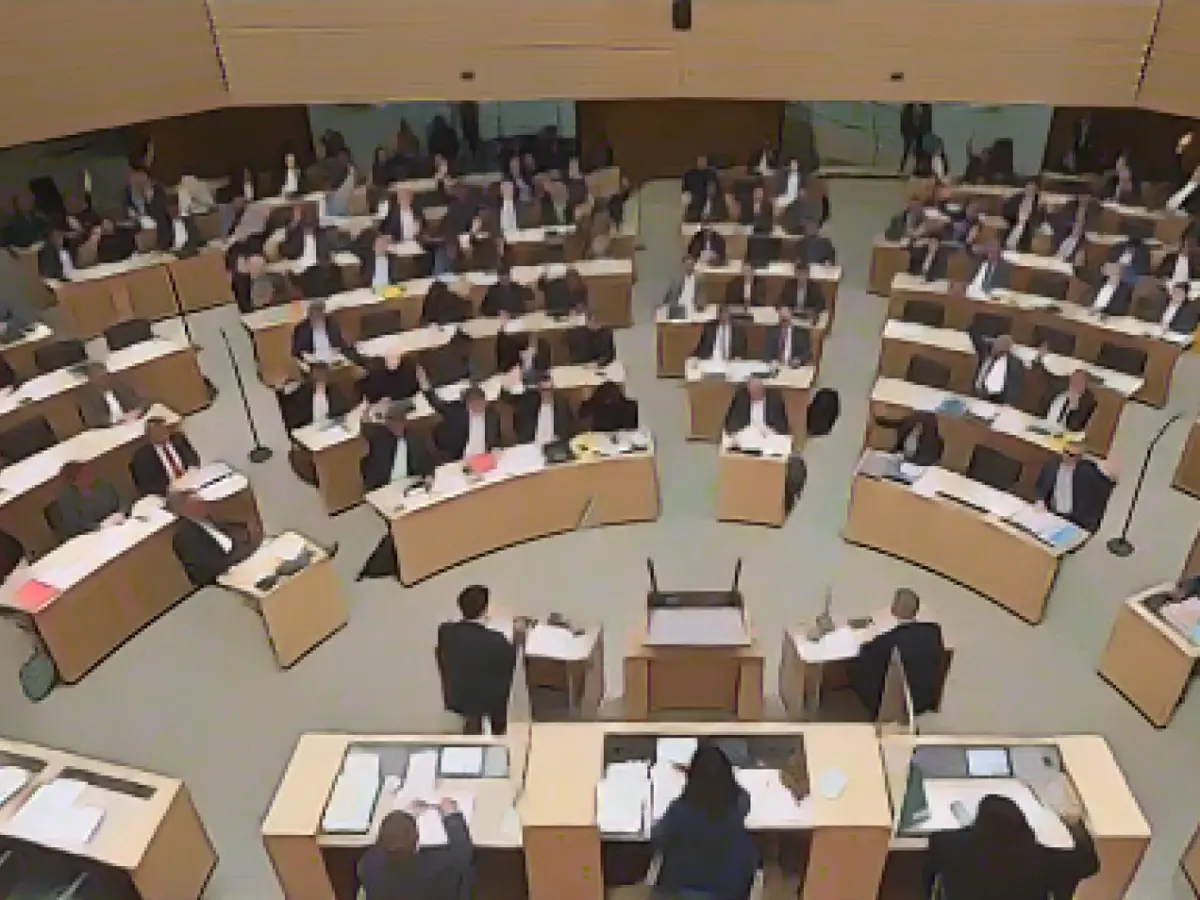Parties - Smaller state parliament: FDP sues to stop the referendum
In the coming days, the FDP intends to file a complaint with the Constitutional Court against the referendum to reduce the size of the state parliament, which has been stopped by the Ministry of the Interior. Faction leader Hans-Ulrich Rülke told the German Press Agency in Stuttgart: "It is completely absurd to claim that the bill is unconstitutional because it shifts the electoral law too much towards proportional representation." This is precisely what the Greens, CDU and SPD had already decided with the introduction of state lists, without anyone having made an issue of it.
Rülke went on to say that with a bloated XXL state parliament, only around a third of directly elected representatives would sit in the state parliament, as with the Liberals' "lean proposal", only far fewer in total.
Before Christmas, the Ministry of the Interior had declared that although the FDP had submitted sufficient signatures, the proposed bill was inadmissible for constitutional reasons. According to the FDP's draft, proportional representation would carry significantly more weight than the personal vote, according to the criticism. The FDP sees this as a tactical maneuver by Interior Minister Thomas Strobl (CDU). Rülke emphasized: "Thomas Strobl's motive is to accept a defeat in court, but so late that the reduction of the state parliament will not take effect until 2031." This would allow him to create as large a parliament as possible before then and possibly gain a seat in the state parliament himself, which the population has not yet given him. "If the current electoral law is constitutional, so is our proposal."
The sticking point is Article 28 of the state constitution
The FDP has submitted more than 10,000 signatures to the ministry. With the referendum, the Liberals wanted to reduce the number of constituencies in the south-west by almost half. The aim was to prevent the parliament from becoming bloated. Instead of 70, there should only be 38 constituencies in future, similar to the Bundestag elections. This would drastically reduce the probability of overhang and compensatory mandates, it was said. The FDP parliamentary group in the state parliament recently failed with a corresponding bill.
For the Ministry of the Interior, the FDP plan is unconstitutional. The fewer constituencies there are, the smaller the proportion of MPs who receive a direct mandate - i.e. who are elected to the state parliament directly from a constituency, the ministry stated. Specifically, this concerns Article 28 of the state constitution. In the ministry's view, the principle of personal election would be shifted too far in favor of proportional representation. Baden-Württemberg's state parliament election law is a mixed system of personal and proportional representation.
Constitutional Court
Read also:
- A clan member is punished here
- Traffic lawyer warns: Don't talk to the police!
- Will he be convicted as Jutta's murderer after 37 years?
- He also wanted to kill his cousin
- The FDP, led by Hans-Ulrich Rülke, intends to challenge the Ministry of the Interior's decision to halt the referendum on reducing the size of the state parliament in the Constitutional Court.
- According to Rülke, the FDP's complaint against the referendum alleges that it infringes on constitutional principles by favoring proportional representation over the personal vote excessively.
- The Constitutional Court will need to consider whether the proposed reduction in constituencies, as outlined in the FDP's referendum, violates Article 28 of Baden-Württemberg's state constitution.
- The FDP has amassed more than 10,000 signatures in support of their referendum, which aims to cut the number of constituencies in the state by almost half.
- Thomas Strobl, the CDU's Interior Minister, has declared the FDP's proposed bill inadmissible for constitutional reasons, citing concerns about the shift in favor of proportional representation.
- Rülke accuses Strobl of using this tactic to reshape the state parliament before the constitutionality of the referendum is determined, possibly securing a seat for himself in the process.
- In anticipation of the Constitutional Court's ruling, the ongoing dispute between the FDP and the Ministry of the Interior could have significant consequences for the composition and electoral processes of Baden-Württemberg's state parliament.
Source: www.stern.de








